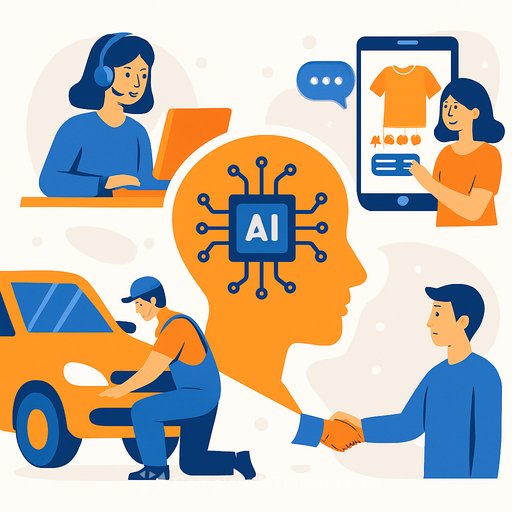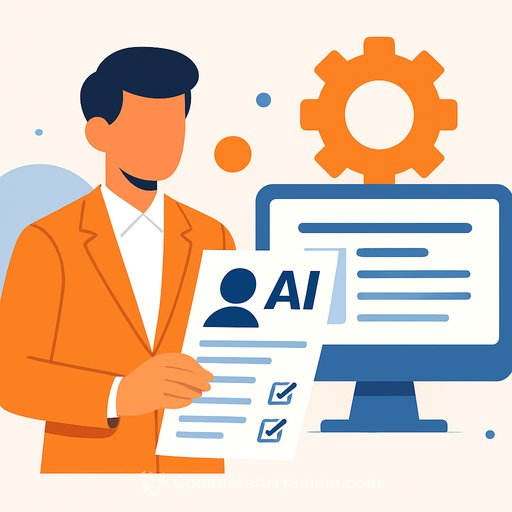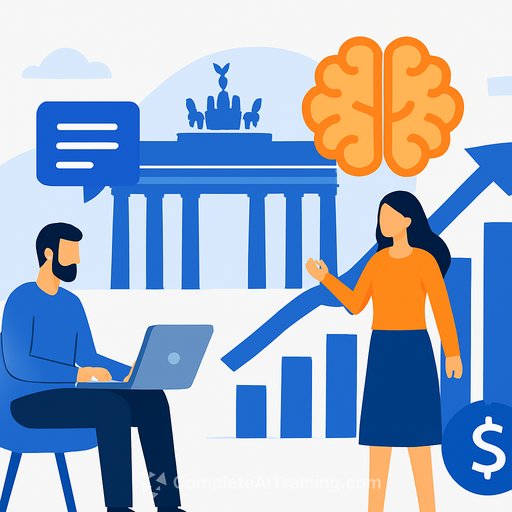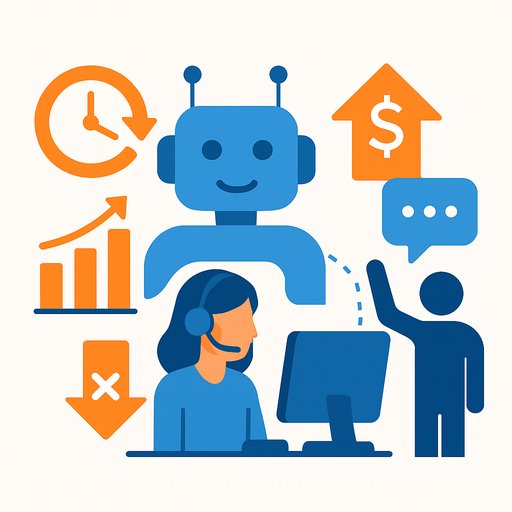How AI Is Changing Customer Experience Across Industries
Customers today expect faster, smarter, and more personalised interactions. Artificial intelligence (AI) is a key factor driving this shift. It’s transforming how businesses connect with customers, solve problems, and anticipate needs. From handling simple queries to offering predictive support, AI is helping companies move from routine tasks to creating meaningful experiences.
What is the Use of AI in Customer Experience?
AI improves customer experience by making interactions smoother, quicker, and more relevant. Instead of waiting for a human agent, customers increasingly get instant answers from chatbots and virtual assistants. AI analyses large volumes of data, like purchase history and browsing behaviour, to understand customer preferences and pain points. This enables businesses to act proactively instead of just reacting.
Advantages of AI-Powered Solutions
Personalisation at Scale
AI recommends products or services based on individual customer history. This level of personalisation would be impossible manually for millions of customers. It boosts satisfaction and helps businesses grow without losing quality.
Speed and Efficiency
Automated chatbots and voice assistants reduce wait times drastically. Industries like healthcare benefit by using AI to gather patient information and schedule appointments, freeing staff from routine admin work.
Consistency
Unlike humans, AI delivers consistent results every day without fatigue or mood swings. This reduces errors and builds a reliable brand image.
24/7 Availability
AI systems respond instantly at any hour, supporting customers across time zones. This flexibility improves customer support and experience worldwide.
Cost Savings
AI automates repetitive tasks, lowering the need for large support teams. For example, telecom companies use AI to handle 60% of billing queries, letting human agents focus on complex issues.
Actionable Insights
AI turns both structured and unstructured data into clear insights. Businesses use these to improve operations, prepare plans, and solve problems faster.
How AI is Improving Customer Experiences
Predictive Customer Service
AI models detect potential problems before customers notice. For example, telecom providers like Vodafone and Jio predict network capacity issues and proactively offer data top-up options.
Smart Recommendations
Recommendation engines analyse browsing and purchase data to suggest relevant products or content. Netflix, for instance, uses AI to personalise movie and show suggestions based on viewing habits.
Natural Conversations
Modern AI assistants understand context, slang, and emotions, making interactions feel more human. Apple’s Siri and Google Assistant recognise multiple Indian languages and can interpret tone and intent.
Omnichannel Support
AI maintains seamless customer journeys across websites, apps, and call centres. Emirates Airlines ensures customers get consistent support whether booking online, calling, or at the airport.
Emotion and Sentiment Analysis
AI detects customer emotions through voice tone and word choice. IBM Watson, for example, monitors live chats and social media to escalate frustrated customers to senior agents quickly.
Why Companies Invest in AI for Customer Experience
- Higher Customer Retention: Personalised, effortless experiences keep customers loyal and reduce churn.
- Increased Revenue: AI suggests relevant products at the right time, boosting sales and repeat purchases.
- Better Operational Efficiency: Automating routine queries frees employees to focus on complex tasks.
- Improved Decision-making: AI turns data into insights, helping leaders adjust strategies quickly.
- Scalability: AI handles growing customer interactions without sacrificing quality.
- Brand Loyalty and Trust: Consistent, understanding AI responses build emotional connections over time.
Examples of Businesses Using AI in Customer Experience
Amazon
Amazon’s recommendation engine analyses browsing and purchase history to suggest complementary products. This encourages customers to add more items to their carts, increasing sales volume.
Netflix
Netflix’s AI studies when and what you watch to offer personalised show recommendations, reducing browse fatigue and lowering subscription cancellations.
Starbucks
The Starbucks app uses AI to send personalised offers based on purchase history, time of day, and local weather. For example, cold coffee suggestions on hot afternoons improve customer retention.
HDFC Bank
HDFC’s AI chatbot Eva provides instant answers for common banking queries, reducing wait times and making digital banking more accessible.
Sephora
Sephora combines AI with augmented reality for virtual makeup try-ons. The system recommends products based on skin tone and preferences, bridging the gap between online and offline shopping.
Airbnb
Airbnb’s AI helps travellers find listings matching their preferences and detects potential fraud, enhancing trust and smoother experiences for hosts and guests.
Conclusion
AI is now essential for businesses wanting to improve customer experience. It replaces long wait times with instant, personalised interactions that save costs and build loyalty. Customers benefit from smoother, more satisfying journeys. Companies using AI to anticipate needs and deliver real value will stay competitive in this AI-driven era.
FAQs
Q1: Is AI in customer experience only for large companies?
No. Small and mid-sized businesses are increasingly adopting AI tools like chatbots and recommendation engines to improve customer support.
Q2: How is AI different from traditional customer support systems?
Traditional systems rely on scripted human responses. AI learns from data and adapts in real time, handling millions of requests simultaneously without losing quality.
Q3: What industries benefit most from AI in customer experience?
Retail, banking, healthcare, travel, and entertainment lead in using AI to enhance customer interactions.
For those in customer support looking to deepen their AI skills, exploring practical AI courses can provide valuable insights into applying AI effectively.
Your membership also unlocks:





